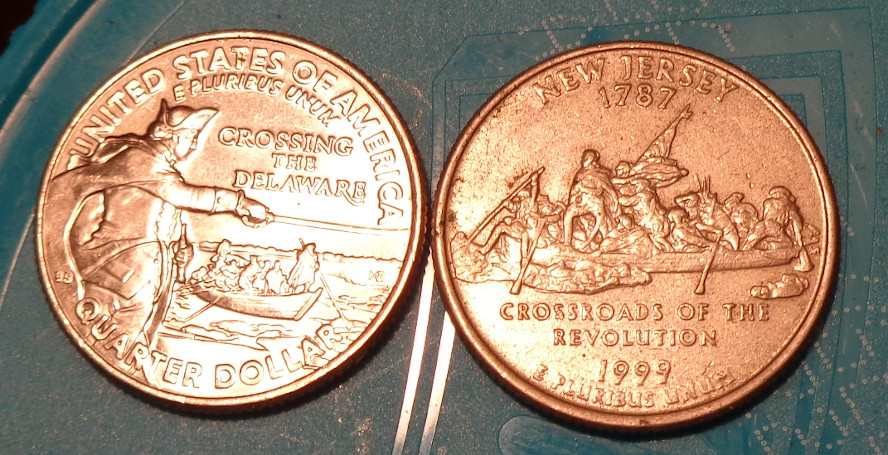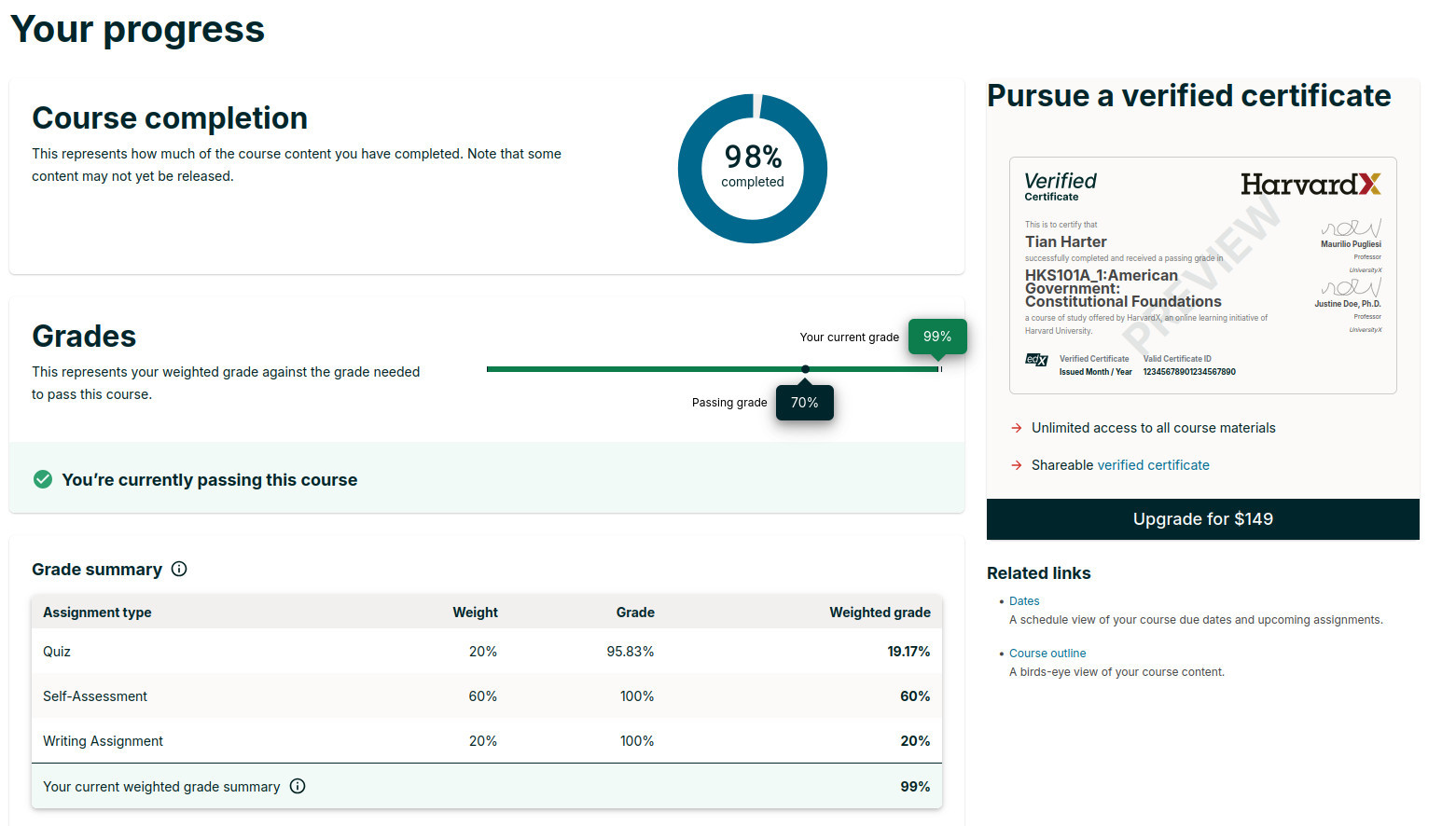The writing assignment got me interested. Just decided to write up the boundary conditions for being a good citizen they brought to mind. Quit going when I reached the word limit they set. Seeing I'm an auditor instead of a student, it seems unlikely my paper is going to get read by them. Seeing as how I'm not exactly the normal kind of student for the class I don't recommend copying me if you're a student there.
Title: It's Okay to be a Law Abiding Citizen.
In one of his later novels, R. A. Heinlein described the Bill of Rights as "Five rules for what the government owes the people and five rules for what the people owe the government." The Seventh Amendment says there has to be twenty dollars at stake before you can make a federal issue of something. When the Bill Of Rights was written, $20 was a lot of money. Now many of us think of $20 as pocket change. Let's ponder how due process of law can be used to derive an entertainment value revolution from the constitution and other known facts.

First of all, there are Hollywood wars and there are real world wars. Corporate America is deeply involved in advertising wars. The third Amendment to the constitution says "No soldier shall, in time of peace be quartered in any house, without the consent of the owner, nor in time of war, but in a manner to be prescribed by law." Consider a New Jersey quarter. There is a boatload of soldiers on that coin. Am I consenting to "quartering soldiers in my home" by bringing that coin home? Whatever the answer to that, there is much less than $20 worth of NJ quarters in my home so I can't make a federal case out of it. Therefore it must be a private matter.
The Eighth Amendment says the government can't use cruel and unusual punishment. A successful comedian can inflict a lot of 'pun'ishment on their audiences. The general rule of thumb we use: "If everybody is laughing it's okay." I have seen audiences turn on on speakers when their words didn't go over well. For me that exact moment when he "yelled fire in a crowded theater" is when he lost the government standing in the eyes of the audience, so to speak. Presumably a comedian that wants to stand in front of many audiences is closer to a member of the press than most citizens from a first amendment point of view.
People spend a lot of time talking about "freedom of religion". On a regular basis I ride by a church with a sign outside that reads "We are carbon neutral. You can do it to!" I like that they are using their freedom of religion to promote a good idea. I stopped to talk to them about it once. They explained that it's not just the solar panels on the roof. They have also planted the grounds with stuff that gets by on local rainfall and many other things. I think of them as a group that understands well the maxim "First do no harm." There is enduring government interest in shared understand of that term. For one thing, every doctor swears to do no harm, so there is an active and strong community that understands what it means.
Civil Rights are all about equal protection of the law. Due process of law is all about finding justice. When elected representatives add delays to a proceeding as if they were evading justice it erodes public trust. Since the Declaration of Independence can only offer "Life, liberty, and the pursuit of happiness", anybody that wants to find happiness in their own back yard better be working with free speech and pocket change. Nothing is reserved for incumbents that plead the fifth by saying "I had nothing to do with it."
Article IV Section 2 reads "The Citizens of each State shall be entitled to all Privileges and Immunities of Citizens in the several States." To my way of thinking this means we all have the same rights to listen to what's going on and act as we see fit. Hopefully from this and all the other sections and clauses we can continue to craft a more perfect union.
393


